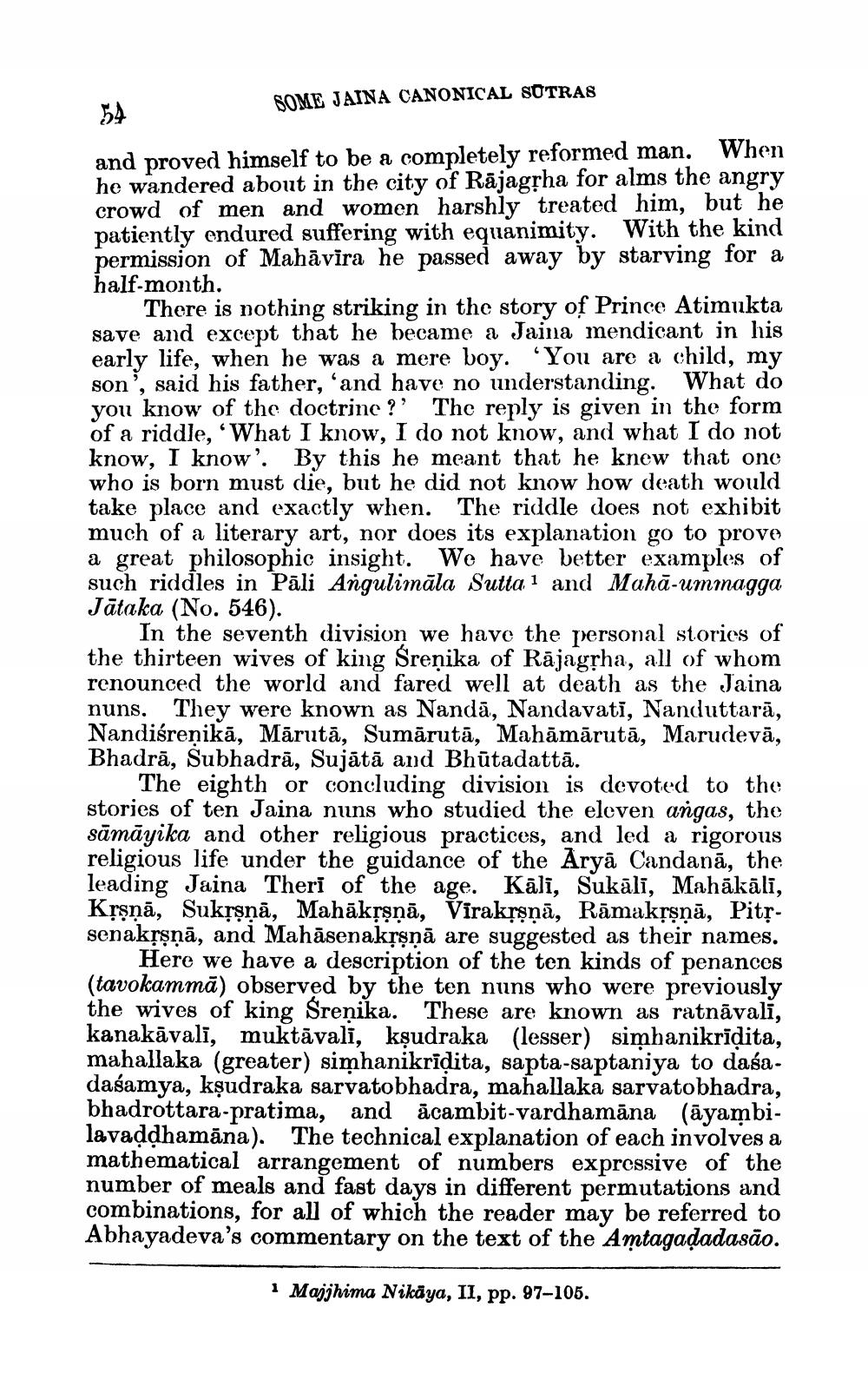________________
SOME JAINA CANONICAL SOTRAS
54
and proved himself to be a completely reformed man. When he wandered about in the city of Rājagļha for alms the angry crowd of men and women harshly treated him, but he patiently endured suffering with equanimity. With the kind permission of Mahāvira he passed away by starving for a half-month.
There is nothing striking in the story of Prince Atimukta save and except that he became a Jaina mendicant in his early life, when he was a mere boy. 'You are a child, my son', said his father, and have no understanding. What do you know of the doctrine ?' The reply is given in the form of a riddle, 'What I know, I do not know, and what I do not know, I know'. By this he meant that he knew that one who is born must die, but he did not know how death would take place and exactly when. The riddle does not exhibit much of a literary art, nor does its explanation go to prove a great philosophic insight. We have better examples of such riddles in Pāli Angulimāla Sutta 1 and Mahā-ummagga Jataka (No. 546).
In the seventh division we have the personal stories of the thirteen wives of king Srenika of Rājagrha, all of whom renounced the world and fared well at death as the Jaina nuns. They were known as Nandā, Nandavati, Nanduttarā, Nandiśreņikā, Mārutā, Sumărutā, Mahāmārutā, Marudevā, Bhadrā, Subhadrā, Sujātā and Bhūtadattā.
The eighth or concluding division is devoted to the stories of ten Jaina nuns who studied the eleven angas, the sāmāyika and other religious practices, and led a rigorous religious life under the guidance of the Arya Candanā, the leading Jaina Theri of the age. Kāli, Sukāli, Mahākālī, Krsņā, Sukrsnā, Mahākļşņā, Virakrsņā, Rāmakrsņā, Pitr. senakņşņā, and Mahāsenakrsnā are suggested as their names.
Here we have a description of the ten kinds of penances (tavokammā) observed by the ten nuns who were previously the wives of king Śreņika. These are known as ratnávali, kanakāvali, muktāvalī, kşudraka (lesser) simhanikridita, mahallaka (greater) simhani!
hiva to data. dasamya, kşudraka sarvatobhadra, mahallaka sarvatobhadra, bhadrottara-pratima, and ācambit-vardhamāna (āyambilavaddhamāna). The technical explanation of each involves a mathematical arrangement of numbers expressive of the number of meals and fast days in different permutations and combinations, for all of which the reader may be referred to Abhayadeva's commentary on the text of the Amtagadadasāo.
• Majjhima Nikāga, II, pp. 97-105.




